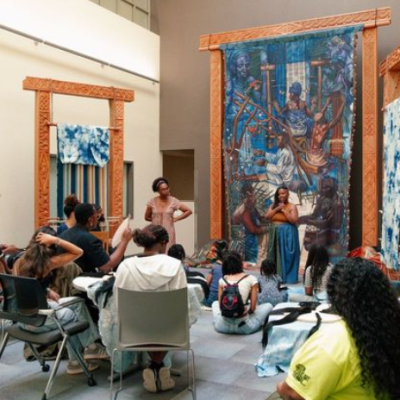Boston’s First Youth Town Hall Kickstarts a Passionate Dialogue Between Teens, BPS, & Mayor Wu
Founded in 1647, Boston Public Schools is one of America’s oldest public school systems, and Boston’s leaders take pride in its institutions, academic integrity, and historical achievements. However, this year, BPS may be facing a federal budget cut of up to $6.4 million — all while spending the most per student out of any large district. This news has raised several questions around funding efficiency, namely how officials such as Mayor Michelle Wu and Superintendent Mary Skipper plan to to address these issues.
But this also leaves another important question unanswered: How do BPS students themselves feel about the state of their school system? Students voiced their concerns and described negative experiences with BPS directly to school officials, during Boston’s first Youth Town Hall on Tuesday, November 12th. Here is a summary of some of the topics that were raised by Boston’s teens.
Disability Access Within BPS schools
Many disabled students have had difficulties accessing the support that they need. One Boston Latin School (BLS) student described the struggle she faced to receive assistance after being injured by the Franklin Park shooting last summer. She stated, “I was restricted to a wheelchair for two months, and despite me and my school putting in a request for disability transportation before the school year even started, the bus was only routed a month and a half [afterwards].” These delays demonstrate the desperate need for a system that is more responsive to delivering disability accommodations.
Student & Teacher Agency
A common theme throughout the night was how students wished to have more representation, with a direct voice on school policy changes, funding, and decision making. The creation of an independent student oversight committee would allow for students to have a direct vote in the policies that affect their lives. They also advocated for more information for teachers, who are commonly left in the dark about important issues and left out in decision making. Many teachers often feel as left out as students on issues within BPS and their own schools.
Trump, the Department of Education, & BPS’ Future
With President Donald Trump vowing to dismantle the Department of Education, students have asked what that will mean for them and the future of BPS. Mayor Wu has stated that BPS is bracing for this change, and will be able to acquire federal funding through different routes. Despite the worry, Mayor Wu and Superintendent Skipper have assured students that they will do their best to continue serving and helping Boston Public Schools.
Bathroom & Phone access
Some schools have faced recent controversy over their phone and bathroom policies. Some BPS schools lock many of their bathrooms. Students have raised health concerns regarding this, as lack of bathroom access for seven hours or more can have devastating effects on someone’s health.
Additionally, schools such as Boston Latin Academy have been looking to invest in Yondr pouches, which are intended to lock phones and prevent their usage at school. Students have called out issues with this policy, such as those with diabetes being unable to track their blood sugar levels, but have also raised concerns about the danger in keeping students’ phones away, particularly if there is any violent threat and students are left disconnected from their families and caregivers.
Generally, students feel ready to face accountability and responsibility for their actions, but they feel that lockdowns are too extreme.
Food at BPS
There was a lot of discussion on the quality of food lunches at BPS. Students described their experience of not having enough to eat, or being given expired milk and food, and how that has affected their ability to play sports, participate in extracurriculars, as well as studying in general. Students have also advocated for a larger variety of school meal options. Many students also mentioned how school meals are sometimes their only source of food, and that the general standard of quality needs to be raised.
Diversity & Inclusion
Although BPS is one of the most diverse districts in the country, many students do not have their backgrounds well represented in faculty and mentors. One student said, “Throughout my entire educational career at BPS, I have not once had a teacher of Muslim or Arab descent.”
Having a diverse set of role models is essential to learning and being able to understand others, as well as being understood. It is paramount that BPS continues to strive for diverse faculty and classrooms.
Mental Health & Higher Education preparation
Students feel as though they are not adequately prepared for higher education, and that mental health services have been lacking. By creating more mentorship spaces, BPS can enable students to grow mentally and emotionally, which will prepare them for college, career, and general adulthood.
What’s next?…
In the wake of today’s political turmoil, there are several challenges that BPS faces. However, I believe that hosting youth town halls to listen to teens is a big step towards understanding what progress is currently needed the most in Boston’s schools. Although I don’t think things at Boston Public Schools will get better overnight, by expressing our thoughts and feelings to those in power, we create space for voicing where these necessary improvements need to take place next. Overall, I am hopeful for the future of BPS, and anticipate that we will be able to use our voices to create lasting change.









